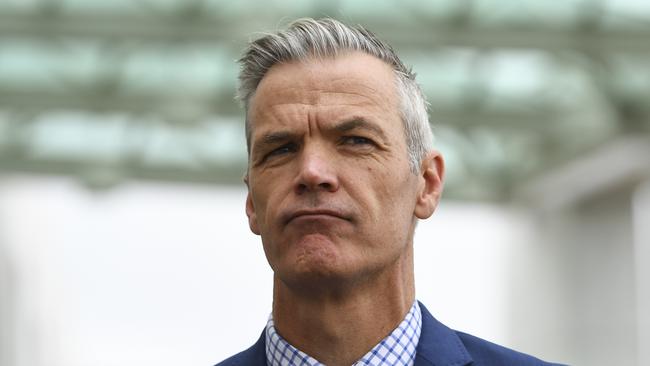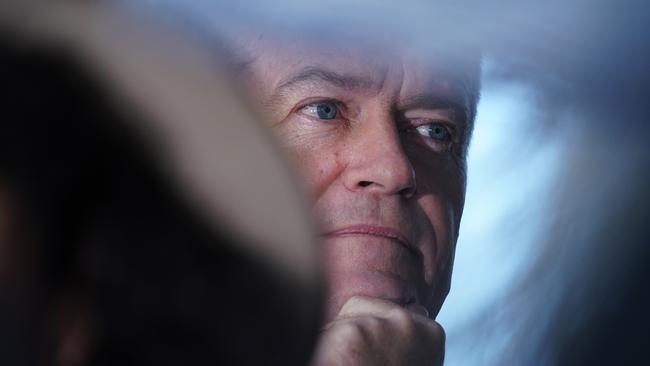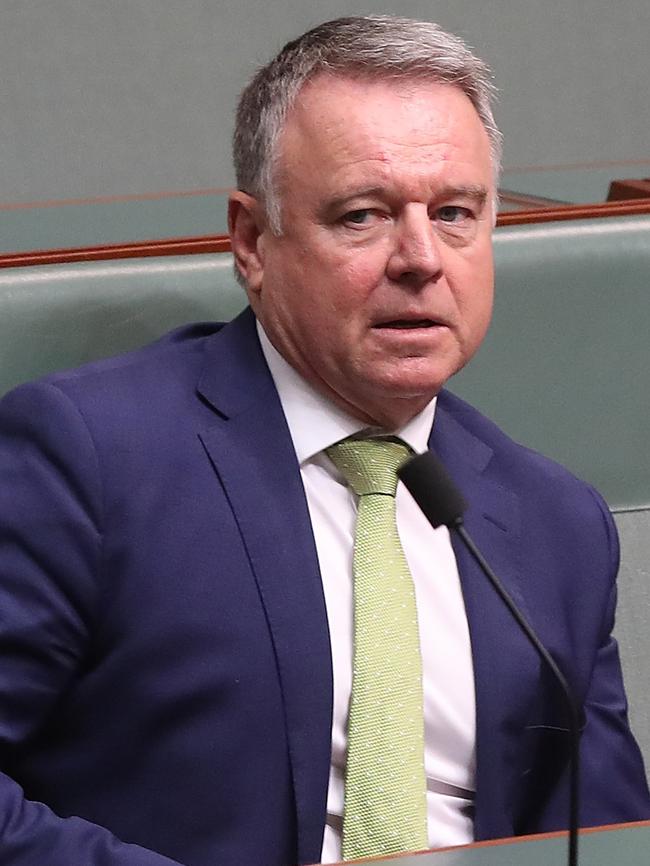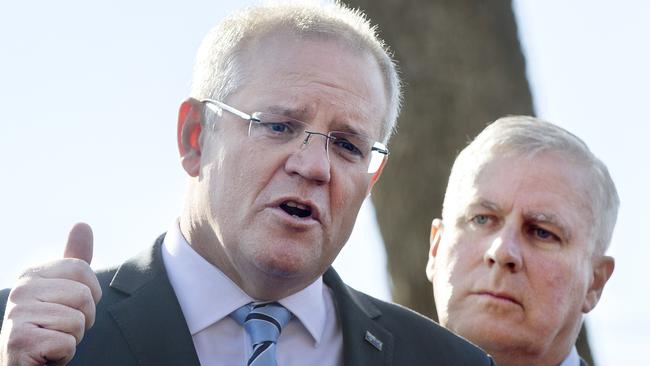Labor’s climate policy will hurt farmers, National Farmers’ Federation says
Bill Shorten set for brawl with farmers if he becomes PM, with peak body warning Labor’s emissions target may hurt exports.

Bill Shorten is set for a brawl with farmers on industrial relations, trade and climate change policy if he becomes prime minister, with the peak farmers’ lobby warning Labor’s 45 per cent emissions reduction target could hit the competitiveness of exports.
National Farmers’ Federation president Tony Mahar has warned the Opposition Leader’s climate change agenda would impact farmers, despite the agriculture sector being carved out of key parts of its policies.
“We know transport and electricity costs increase under the Labor policy so we want to understand better on how they think that would impact on our target,” Mr Mahar said.
“If it means more costs in the supply chain then we have to have ways where the competitiveness on Australian agriculture products are not compromised.
“We export two-thirds of what we produce. So we have got to maintain our competitiveness while doing our bit for climate change.
“The cost of 45 per cent in emissions target is likely to mean there are extra costs in the supply chain and we want to understand what that means for agricultural products both here and overseas and we haven’t got that level of detail yet.”

Mr Mahar said he was also concerned about Labor’s plan to limit land clearing and warned against attempting to renegotiate the Australian-Indonesian free trade agreement.
“We want the Indonesian free trade agreement ratified ASAP. It has been signed but it has got to go through the parliament,” he said.
“What we wouldn’t want is for an intention to be renegotiated because I know, having travelled the world with these trade agreements in negotiating rounds, how hard they are to do.”
The Australian Council of Trade Unions and the Australian Manufacturing Workers’ Union have voiced concern about the deal, while Labor has told Indonesia it could seek to delete clauses that make it easier for foreign companies to sue the government.
On increasing farmer access to foreign workers, Mr Mahar said he was under the impression Labor intended to deliver an agriculture visa, which is bitterly opposed by the union movement.

“(Labor’s agriculture spokesman) Joel Fitzgibbon has said in media statements that he will deliver an agriculture visa so if they stand by that commitment then we will be happy,” Mr Mahar said.
But a Labor spokesman said the party had not committed to an agriculture visa. The spokesman instead flagged tougher labour market testing for farmers before they can employ foreign workers.
“Labor is deeply concerned by the numerous examples of exploitation and underpayment of workers on temporary visas and the failure of the Liberals to stamp it out,” the spokesman said.
“The Abbott-Turnbull-Morrison government has failed to address workforce shortages facing Australia’s agriculture sector.
“A Shorten Labor government will get the balance right and will work with all stakeholders to give young Australians the best chance to secure work in the agribusiness sector.”
There has also been a brawl in the government about the visa, which could bring in up to 100,000 overseas farm workers from Asia to make up for a local shortage.
Scott Morrison last year agreed to “moving towards” an agricultural visa, after the government’s coldness on the issue infuriated Nationals MPs and threatened the authority of Deputy Prime Minister Michael McCormack.
“Our government does support moving towards an agricultural visa. There has never been any question about that,” Mr Morrison said last October.

Liberal cabinet ministers were concerned the visa would undermine existing labour schemes for Pacific Island workers.
Foreign affairs analysts have warned that the proposed new visa class, which would allow temporary workers from across Asia to compete for farm jobs with Pacific Islanders, would threaten Australia’s core strategic relationships as China seeks to expand its influence in the region.
The government has not progressed with the agriculture visa but extended the working holiday visa for up to three years for people who work in the regions.
Mr Mahar said a special agriculture visa was essential for farmers to grow their businesses.
“They are dealing with what we believe are shortages and challenges getting people on farms and keeping them on farms,” Mr Mahar said.
“The remote nature of agricultural work (makes it) difficult for us to utilise the existing visa arrangements.
“The existing visa arrangement were designed for aid programs, they were designed for cultural exchange, they weren’t designed with a specific agriculture labour component as their central component.
“We want a government that recognises the need for an agriculture-specific visa and delivers on it.”




To join the conversation, please log in. Don't have an account? Register
Join the conversation, you are commenting as Logout